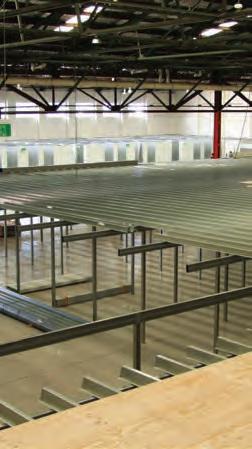
4 minute read
HR Help Desk
COVID-19 vaccination –A HR perspective
By Cath Grawe, HR Central Communications Officer
Advertisement
Over the last month, we have finally seen the rollout of the first of the COVID-19 vaccinations in Australia. 84-year-old aged Care Resident Jane Malysiak gamely rolled up her sleeve, along with the Prime Minister, to have THE jab.
We are being encouraged by the Prime Minister, Chief Medical Officers, State representatives, epidemiologists, specialists, and scientists to be vaccinated. Why? If you are susceptible (think aged, working in high-risk areas such as healthcare, or have other underlying medical conditions), it is highly recommended to protect yourself.
The more of us that have the vaccination, the less chance of community transmission, which helps everyone. Fewer cases of COVID means fewer restrictions, minor illnesses, and both business and our lives can continue as we so would like them to.
You will have already adapted your workplace over the past 12 months to facilitate employees working from home, safe distancing in the workplace, registering all visitors, encouraging hand sanitising, mask-wearing and temperature testing. Ensuring an environment where employees only attend the workplace if they are symptom-free.
The introduction of the vaccine does not change this.
There are no laws or public health orders in Australia that empower an employer with the right to enforce their employees to vaccinate. This could change in time for high-risk areas (of which the storage industry is not), but there is nothing at the date of publication of this article.
As a result, currently, an employee has the right to refuse the request or an employer’s insistence to have the COVID-19 vaccination. The employer must consider how they will respond to a refusal. Actions such as disciplining or terminating the employee, reducing their pay or changing their duties due to the employee not being vaccinated may result in the employer being exposed to a discrimination or other claim.
If this were to change in the future whereby it is determined that an employer can direct an employee to be vaccinated, an appropriate medical document or a statutory declaration would be satisfactory. In this instance, if an employee refuses to be vaccinated based on medical grounds, you could request a medical certificate as clearance by a GP. Still, you can’t push for specific details that may breach the privacy act.
At this stage, do not ask job applicants for proof of vaccination, as you may provide grounds for a discrimination claim if the applicant was unsuccessful.
Currently, an employee can not refuse to come to work because a colleague has not been vaccinated. However, if an employee is anxious or concerned and can perform their duties equally well at home as per their work environment, an employer may agree to support this request. Also, COVID-19 has brought out anxieties and concerns for some individuals’ mental health, and a business should have some form of support to assist employees should this occur.
Whilst workplace health and safety laws currently do not include vaccination requests for visitors, if this is a condition you would like to see implemented in your workplace, you could advise that entry requires that people need to prove that they have had the vaccination.
If you plan to impose this requirement, you will need to consider and take advice on any privacy and discrimination issues that apply. Once again, it will be many months before some people will have the vaccine available to them. At present best practice is to continue with the recommended control measures under State Government advice. And remember to contact the SSAA HR Helpdesk if you have any questions or concerns.
Recap:
l The vaccine (at date of publication) is not mandatory.
Forcing an employee to have a vaccination could be considered discriminatory/harassment. l The vaccine is being rolled out in order of priority, so even if your employees agreed or wanted to, they may not be eligible for a while. l Continue with your current COVID-19 Health and Safety plan. l Any employee or visitor is responsible for reporting whether they have any COVID19 symptoms, and if so, they immediately leave the premises and remain at home until negative test results. l Those workers who are anxious about returning to the workforce be allowed to work from home (if practicable) or be given the support of an external provider should their feelings of distress and anxiety interfere with their employment.
Have open discussions about the importance of following safety procedures to ensure a safe working environment for everyone, including following the above measures. l
If you would like any further information call the SSAA
HR HELP DESK
1300 01 SSAA / 1300 017 722














